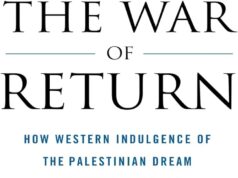The House of Representatives’ Foreign Operations Appropriations subcommittee passed a $40.1 billion budget for 2013 with new stipulations for U.S. funds that go to Egypt and the Palestinian Authority (PA) in an effort to protect U.S. interests in the midst of regional changes.
According to the legislation, which is in its initial stages, should Egypt terminate its peace treaty with Israel, America’s $1.3 billion in military aid to Cairo would be immediately cut. Also, the secretary of state would need to certify that elections are free and policies respecting civil rights are being implemented in order for aid to be delivered. The secretary can waive the restriction based on elections, but cannot waive funds if the peace treaty is canceled. In addition, concerning the Palestinians, according to the bill American aid would be withheld if the PA makes any agreement with Hamas, and if the PA does not actively work to end incitement. This language is harsher than the current text, which would cut aid to Palestinians should there be a Fatah-Hamas unity government.
 Last month, President Obama signed a waiver releasing millions of dollars in aid to the Palestinian Authority that was frozen by Congress after Palestinian President Mahmoud Abbas sought statehood recognition at the United Nations in September 2011. And in March, Secretary of State Hillary Clinton waived a Congressional requirement linking the annual $1.3 billion in aid to Cairo to the military rulers’ support of transitioning to a civilian government, holding free elections, and protecting citizens’ freedoms.
Last month, President Obama signed a waiver releasing millions of dollars in aid to the Palestinian Authority that was frozen by Congress after Palestinian President Mahmoud Abbas sought statehood recognition at the United Nations in September 2011. And in March, Secretary of State Hillary Clinton waived a Congressional requirement linking the annual $1.3 billion in aid to Cairo to the military rulers’ support of transitioning to a civilian government, holding free elections, and protecting citizens’ freedoms.
The new restrictions on aid passed by the House subcommittee must now face a vote in the Appropriations Committee, which is expected to take place next week. If approved, the House of Representatives will vote on the bill. By the time the budget works its way through Congress and is presented to the president, however, these harsher restrictions will likely be watered down. And, if not, the administration can always waive Congress’s restrictions on funding.
But in the new Middle East landscape, it would benefit the United States to tie its foreign aid to specific policy issues. By handing over millions of dollars to a country or people without those bodies falling in line with Washington’s desires, any administration only weakens the value of its words — and standing — in the region.





